30 June 2019
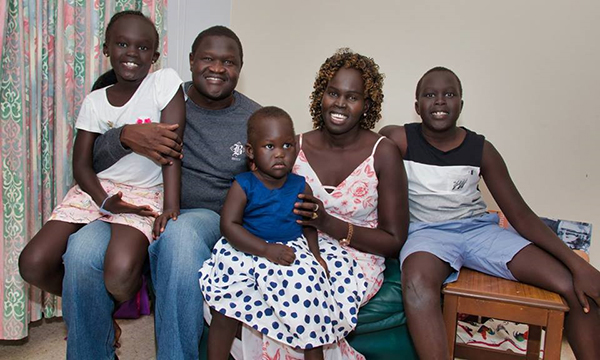
Abok Dau
Financial Assistant, Anglican Diocese of North WA
Co-Founder and Chair, Athiolget Women’s & Children’s Health Association
Bachelor of Business (Human Resource Management)
Guor Michar
Pharmacist, Friendlies Pharmacy
Co-Founder, Athiolget Women’s & Children’s Health Association
Bachelor of Pharmacy
Abok Dau and Guor Michar‘s tale of survival and triumph is remarkable.
After surviving a childhood disrupted by war in Sudan, Guor’s conscription as a child soldier, and 17 years in
refugee camps, the couple have resettled in Geraldton, Western Australia, crafted successful careers in
pharmacy and business administration, and started a young family.
Now the couple are also working tirelessly to save lives in poverty stricken regions of South Sudan through
their Athiolget Women’s & Children’s Health Association, providing lifesaving medicines to the most
vulnerable in the country.
When Abok and Guor were children in Sudan, the mounting political tension in the country eventually
consumed the remote southern region where the pair spent their childhoods.
The decades-long war that led to the separation of the Republic of South Sudan from North Sudan has cost
millions of lives and left millions more living in poverty, without access to adequate medical care, food, and
countless other vital services.
From a young age, Abok’s and Guor’s experiences instilled in each a sense of the fragility of life.
“My early childhood in South Sudan was traumatic due to the war and also the numerous deaths of my
playmates at a very young age,” Guor says.
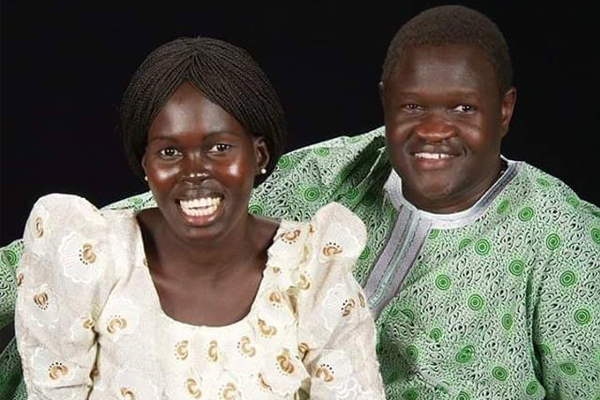
“I was consumed with fear of death as I saw many families, including my own, losing many of their little angels to malaria, typhoid, dysentery and diarrhoea.
“Wailing and mourning would overcome the village and I felt a chapter was closing on our community as every other child born was expected to live for only a month.
“Babies would be kept behind closed doors to protect them from ‘evil spirits’ outside the family hut - a family hut that was surrounded by little unmarked dirt graves that looked like anthills. The fear of stepping on those little graves stoked fear of death even closer.”
As the war intensified around them, famine and poverty became a daily reality for most and disease and malnourishment took many lives. In the South, where the war was most intense, the rebels decided to recruit young boys.
When Guor was just nine he was conscripted and marched for three months to an Ethiopian refugee camp where the rebels trained the young soldiers.
“The reserve camps in Ethiopia were also refugee camps where military activities such as further training, military planning and firing squads were highly practiced,” he says.
“We were over 50,000 boys from different parts of Sudan. Every year, the boys between the ages of 14 and 18-years-old would be armed and sent to the frontlines to fight.”
While Guor and Abok did not meet in Ethiopia their stories traverse the same landscape.
Abok and her family also made the long journey to Ethiopia where they hoped to reunite with her father who had been wounded in the Pochalla war. But when the Ethiopian government was overthrown Guor, Abok and her family were forced to flee back to Sudan. Once again they faced many months of trekking across wartorn countryside.
“We re-entered Sudan in May 1991 and were faced with starvation and constant aggression. We were forced to walk hundreds of kilometres from Pochalla in Sudan to Kenya and arrived in 1992 to seek refuge in Kakuma Refugee Camp,” says Guor.
“We had to walk back into Sudan where the war was very intense. Many people died on this journey, drowning in the rivers or re-joining the fighting,” says Abok. Guor and Abok were forced to spend the rest of their childhood, another 11 years and 13 years respectively, living in the camps, surviving on low-nutrition supplies of maize, beans, and what vegetation the women and girls could find in the nearby bush.
Many children in the region quickly became malnourished or suffered abnormal growth and anaemia. Guor became very anaemic but was one of the lucky ones to receive a blood transfusion in 1996.
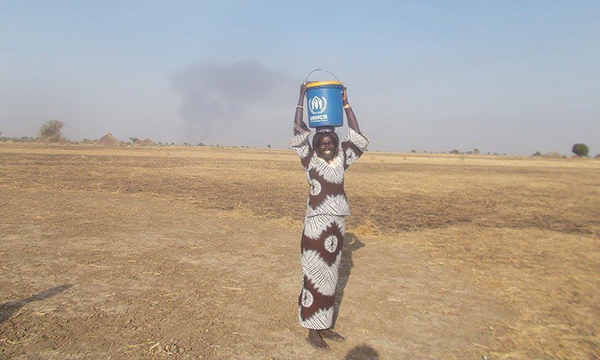
School was a saving grace of the refugee camp. In South Sudan where Guor and Abok were born there were no schools in an area home to more than 120,000 people. So when the opportunity arose for the couple to get their schooling in Kenya they took it very seriously.
Guor worked hard on his studies and was sponsored by the UNHCR to settle in Australia in 2003. Abok’s experience was similar.
“When I got an opportunity to go to school in Kenya like Guor, and many other children, I took it seriously. I was even lucky enough to be listed among those who were taken to Canada by World University Service of Canada (WUSC),” she says. “But because I was waiting to come to Australia with my family, they couldn’t let me be part of those who were accepted.”
We arrived in Perth, Australia in 2005 where I studied English and Human Resources and continued to work as an interpreter with the On-call and WA Translating and Interpreting Services.”
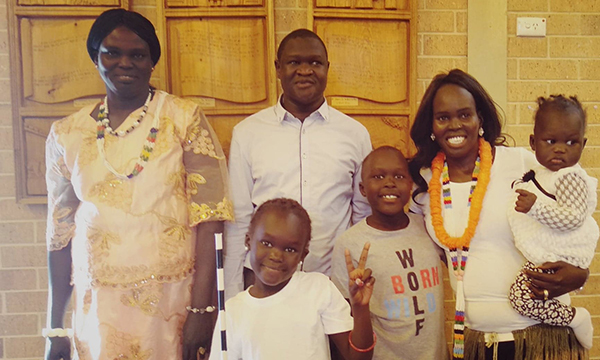
Once Guor and Abok were settled in Australia they were both eager to further their studies.
Abok transferred her studies to UniSA when the opportunity arose to complete a Business degree with a major in Human Resource Management. She is now working as a Finance Assistant while raising three children and administrating the family’s charitable work with the Athiolget Women’s & Children’s Health Association.
“Graduating from UniSA with a Bachelor of Business was a proud moment for me because raising young children while studying is one of the tough jobs,” says Abok.
“I was glad when I received my results that I would be graduating – I could not believe it because my daughter was only one-month-old when I sat for the final exam.”
Guor’s awareness of the many deaths he witnessed from untreated curable diseases drove him to pursue a career as a Pharmacist.
In 2005 he enrolled in UniSA’s pharmacy program where he was Golden Key International Honour Society and the founder and the president of the Sudanese Tertiary Students Association that brings Sudanese students from all South Australian universities and TAFE together.
Guor has now been serving his local community as a pharmacist for 10 years.
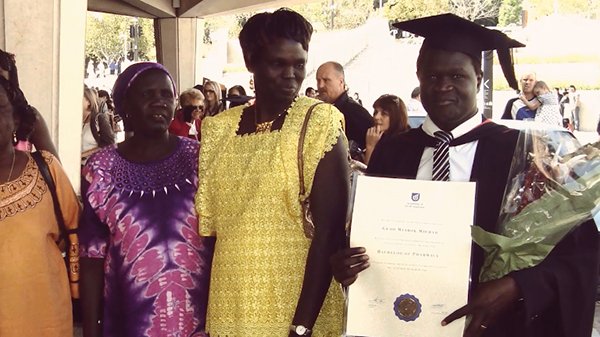
After their studies the couple was compelled to established the Athiolget Women’s and Children’s Association – a charitable organisation that provides essential medicines to the countless innocents affected by the war in South Sudan where medical care is difficult if not impossible to find for many curable diseases.
In January 2012, Abok and Guor were involved in supplying of lifesaving drugs to people in South Sudan, mainly antimalarial, antibiotics, antiepileptics, pain relief, worm treatment, and schistosomiasis.
“The impact this meagre supply had on the local community was considerable as lives were saved and changed for the better. As a result, Athiolget Women’s and Children’s Health Association was born to carry on this generous work to all those in the area” says Guor.
“During the war between North and South Sudan, I believe a big percentage of the 1.9 million people who perished between 1983 and 2005 was due to diseases like malaria, dysentery, diarrhoea, typhoid, STDs, bilharzia and kala-azar or visceral leishmaniasis – many easily curable diseases.”
“From my family, more people died from diseases, especially women and children, than being caught in the conflict. This belief has been my driving force to fight a disease war over a political or economic war that is still being fought today in both countries of Sudan and South Sudan.”
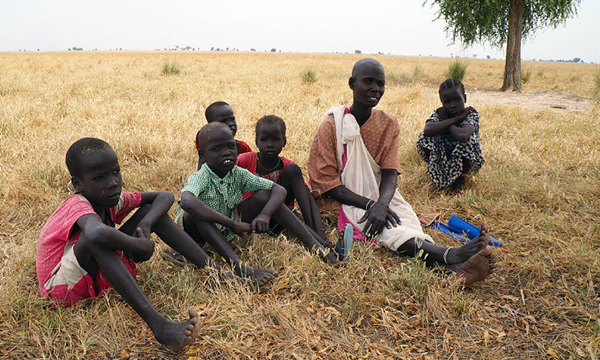
Abok first travelled to South Sudan to establish a clinic in Akot, a remote village in Ruweng State in 2015. The community came together to build a hut for the clinic, which since 2016 has treated 60 people per day for tropical disease treatments.
Abok and Guor also fundraise through the Association to fund medicines and clinic costs.
Thanks to the support of their local community, the organisation is now working to establish a modern clinic in the area that will be able to store medicines and continue to run health services for the area.
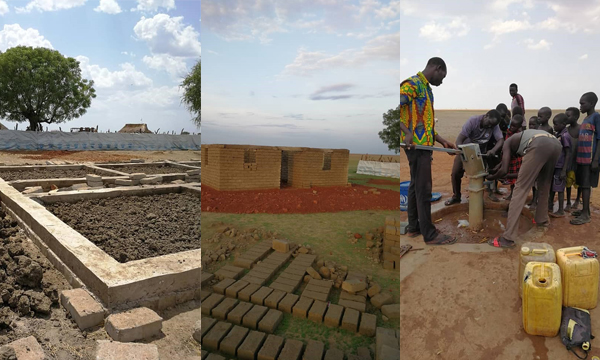
“I am very proud of my wife who has worked so hard to make sure the Association keeps its objective of providing lifesaving medicines to women and children,” says Guor.
The couple have now made a home in Geraldton, Western Australia and are proud parents of their three children Michar, Akur and Ayen.
The children are heavily involved in the Athiolget Women’s and Children’s Health Association fundraising and community, and will carry on this vital work for generations to come.
For more information or to make a donation visit: Athiolget Women’s and Children’s Health Association.


